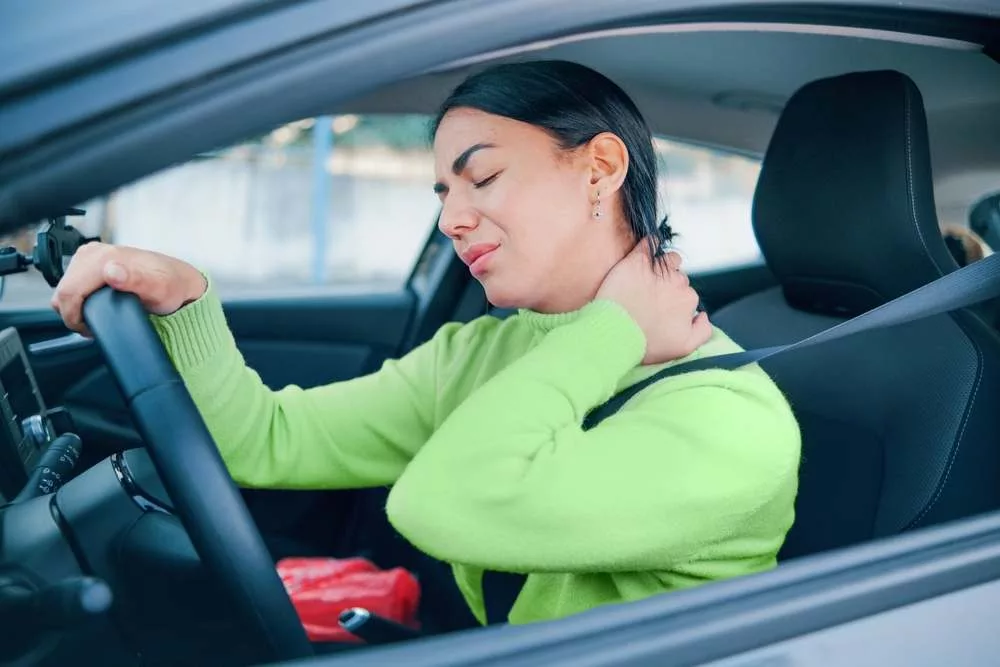After experiencing a car accident, it is common to encounter muscle spasms because of the trauma to your body. Managing these spasms effectively is crucial for promoting healing and relieving your discomfort. While seeking medical attention is essential for a comprehensive evaluation, there are also several self-care tips and treatments that can help alleviate muscle spasms. Let’s explore various strategies to manage muscle spasms after a car accident, including self-care techniques, recommended treatments, and when it is necessary to seek medical attention. By understanding these approaches, you can take proactive steps towards a smoother recovery process for muscle spasms after a car accident.
What Muscle Spasms Feel Like
Muscle spasms can vary in sensation and intensity, but they are often described as sudden, involuntary contractions or tightening of muscles. The specific sensations experienced during a muscle spasm can differ from person to person. Muscle spasms can involve a brief, rapid contraction followed by relaxation, or they may cause the muscle to stay tense for a prolonged period. The affected muscle may feel tight, stiff, or rigid during a spasm. This can lead to a restricted range of motion and difficulty in moving the affected body part. Muscle spasms are often associated with pain, which can range from mild to severe. The pain may be localized to the area of the spasm or may radiate to surrounding tissues. In some cases, muscle spasms may be accompanied by visible twitching or jerking movements in the affected muscle.
Common Causes of Muscle Spasms

Muscle spasms after a car accident can occur due to several reasons related to the impact and trauma experienced during the incident. Some common causes of muscle spasms include:
Whiplash
Whiplash is one of the most common car accident injuries that results from the sudden jolting of your head and upper body back and forth caused by forces during a car accident. Whiplash can lead to muscle spasms in the neck, shoulders, and upper back due to the abrupt stretching and straining of muscles and ligaments in these areas.
Soft Tissue Injuries
The impact of a car accident can result in various soft tissue injuries, such as strains and sprains. These injuries can affect the muscles, tendons, and ligaments, leading to muscle spasms as a protective response by the body.
Muscle Contusions
Direct trauma to the muscles during a car accident can result in muscle contusions or bruises. The injured muscles may undergo spasms as a part of the body’s natural healing process.
Nerve Irritation
The forceful impact of a car accident can irritate or compress nerves, leading to muscle spasms. For example, a herniated disc in the spine can put pressure on nerves, causing muscle spasms in the affected area.
Stress & Tension
Car accidents are often stressful events that can trigger emotional and psychological stress. Stress and tension can manifest in the body as muscle spasms, particularly in the neck, shoulders, and back.
How Long Muscle Spasms Can Last
The duration of muscle spasms after a car accident can vary widely depending on several factors, including the severity of the accident, the extent of the injuries, and individual differences in healing and recovery. In general, muscle spasms can last anywhere from a few days to several weeks or even months. During the initial stages following a car accident, muscle spasms may be more intense and frequent as the body responds to the trauma and inflammation. As the healing process progresses and appropriate treatment measures are implemented, the frequency and intensity of muscle spasms typically decrease over time. It’s important to note that every individual’s healing process is unique, and there is no set timeline for how long muscle spasms will persist. Factors such as age, overall health, adherence to treatment plans, and the presence of underlying conditions can also influence the duration of muscle spasms.
Treatment Options for Muscle Spasms

To ensure an accurate diagnosis, it is important to consult with a healthcare professional who can assess your symptoms, conduct a thorough examination, and order any necessary diagnostic tests. They will also recommend several treatment and relief options available to manage muscle spasms after a car accident, depending on your specific circumstances. Here are some commonly recommended approaches:
Rest & Gentle Stretching
Resting the affected muscles allows them to recover and reduces the risk of further strain. However, it’s important to balance rest with gentle stretching exercises that help maintain flexibility and prevent stiffness.
Cold & Hot Therapy
Applying heat or cold to the affected area can help relax the muscles and alleviate spasms. Heat therapy, such as warm compresses or heating pads, promotes muscle relaxation and blood flow to the damaged tissue. Cold therapy, like using an ice pack, reduces inflammation and numbs the area, providing pain relief.
Pain Medication
Nonsteroidal anti-inflammatory drugs (NSAIDs), such as ibuprofen or naproxen, can help reduce pain, inflammation, and muscle spasms. However, it’s essential to follow the recommended dosage and consult with a healthcare professional if you have any underlying health conditions or are taking other medications. Pain medication should only be considered in conjunction with other treatment modalities.
Physical Therapy
A physical therapist can develop a customized exercise program to strengthen and stretch the muscles, improve flexibility, and promote healing. They may also use techniques such as massage, manual therapy, or electrical stimulation to help relieve muscle spasms.
Stress Relief
Since stress and tension can exacerbate muscle spasms, practicing stress reduction techniques like deep breathing, meditation, or yoga may also help relax your muscles and alleviate any spasms.
How Chiropractic Care Can Help with Muscle Spasms
Chiropractic care can be beneficial in addressing muscle spasms by focusing on the entire musculoskeletal system and the relationship between the spine and the nervous system. Chiropractors are trained to assess and treat conditions that affect the muscles, joints, and nerves, which can contribute to muscle spasms after a car accident. Here’s what you need to know about the benefits of chiropractic care for muscle spasms:
Spinal Alignment
Chiropractors use manual manipulation techniques, often referred to as adjustments, to realign the spine. Misalignments or subluxations in the spine can cause muscle imbalances and tension, leading to spasms. By correcting these misalignments, chiropractic adjustments can relieve pressure on nerves, reduce muscle tension, and promote proper muscle function.
Posture Correction
Poor posture can contribute to muscle imbalances and increase the risk of muscle spasms. Chiropractors can provide posture correction and lifestyle modifications to minimize stress on the muscles and prevent spasms from recurring.
Soft Tissue Techniques
Chiropractors may employ soft tissue techniques such as massage, myofascial release, or trigger point therapy to target specific muscles and release tension. These techniques can help relax tight muscles, improve blood circulation, relieve knots, and alleviate spasms.
Rehabilitation Exercises
Chiropractors often incorporate rehabilitative exercises into treatment that focus on stretching and strengthening the affected muscles. These exercises aim to restore proper muscle balance, flexibility, and range of motion, which can reduce the likelihood of muscle spasms and promote overall healing.
Holistic Approach
Chiropractors take a holistic approach to treating car accident injuries and will also take into consideration factors that may contribute to muscle spasms, such as your lifestyle, nutrition, and stress levels. Your chiropractor may provide recommendations for changes in diet, posture improvements, stress reduction techniques, and other lifestyle modifications to support overall muscle health and reduce spasms.
At Affordable Chiropractic Killeen, our car accident chiropractors treat a wide variety of concerns to help you get back to feeling your very best after a car accident. Book an appointment with a car accident chiropractor in Killeen and get started as soon as possible on our holistic approach to recovery.

